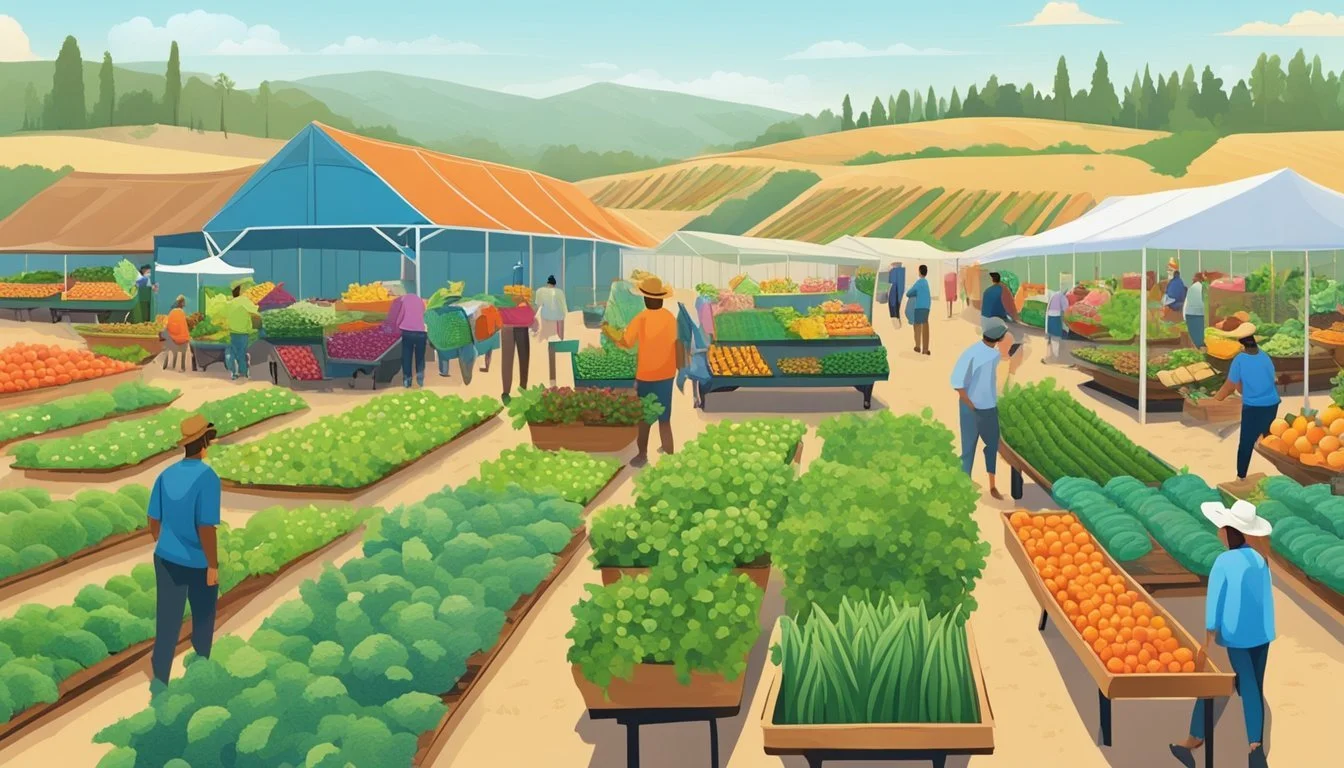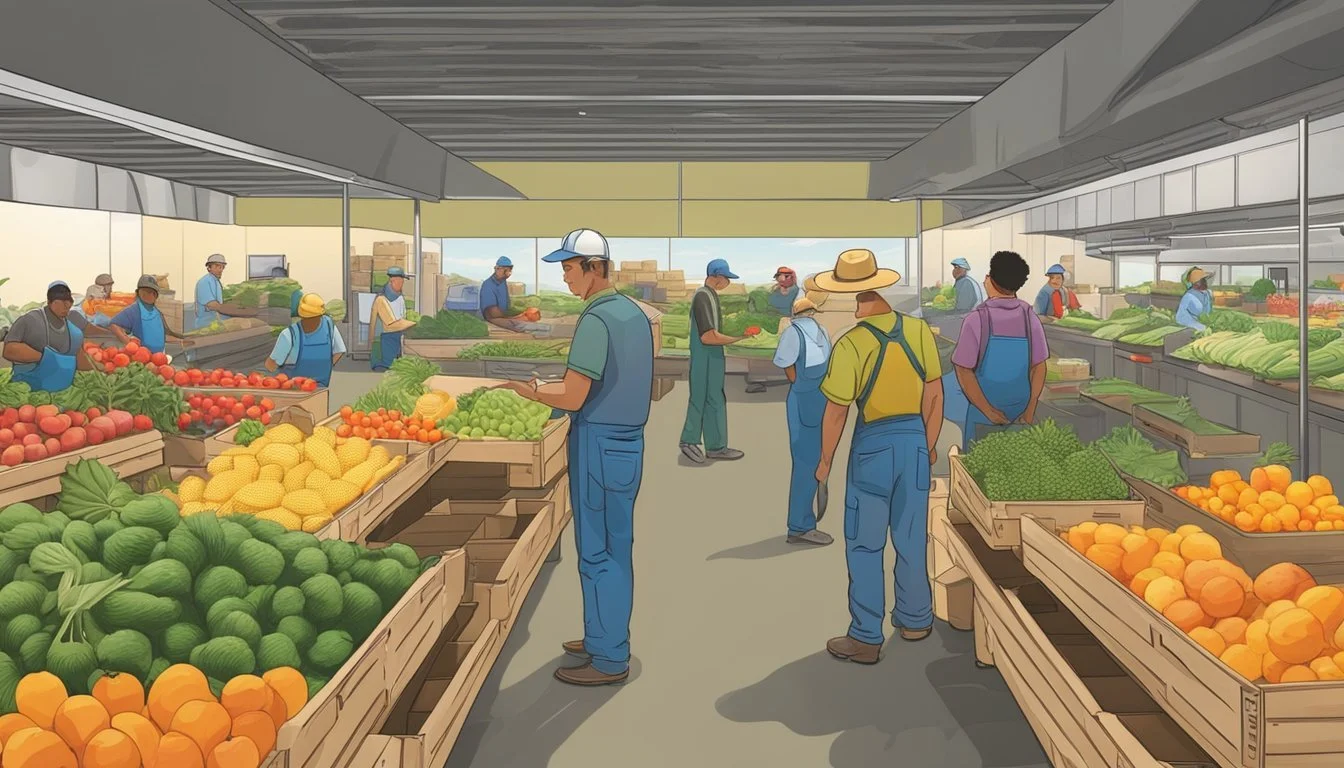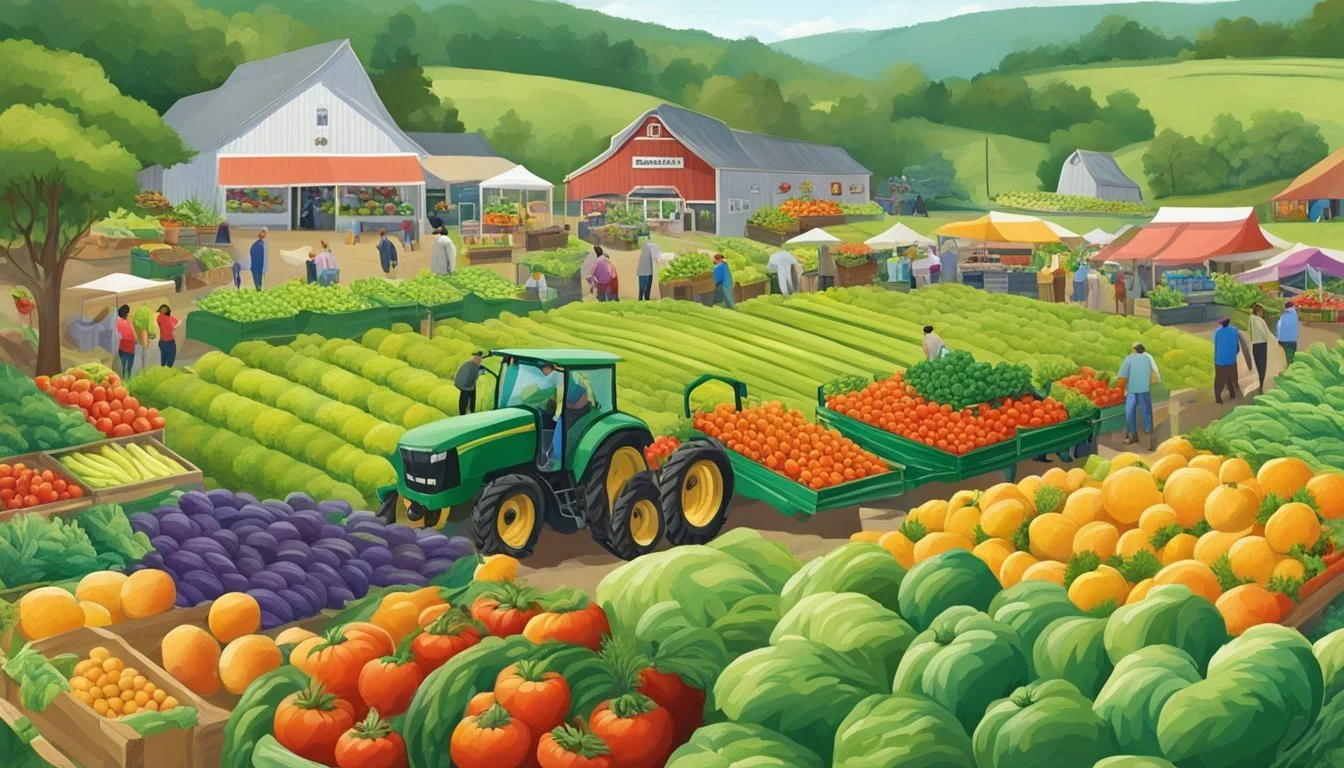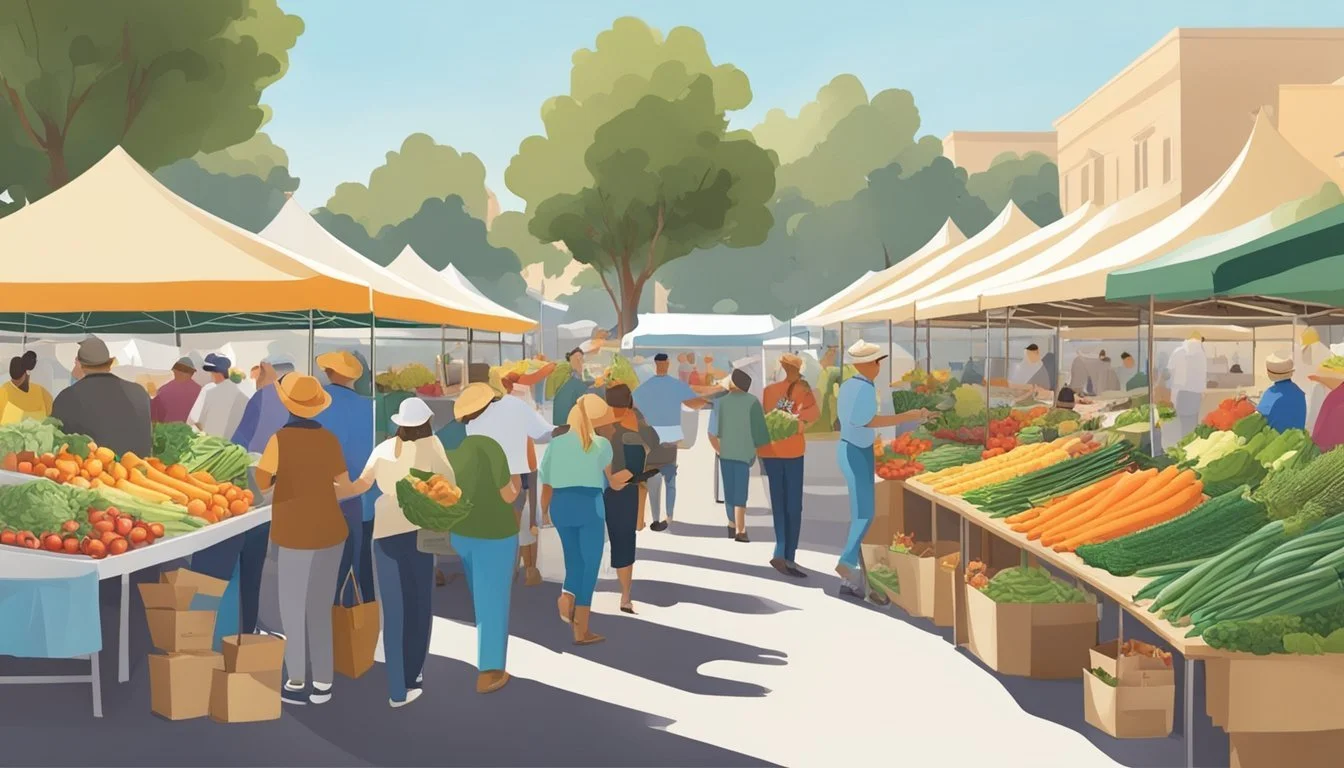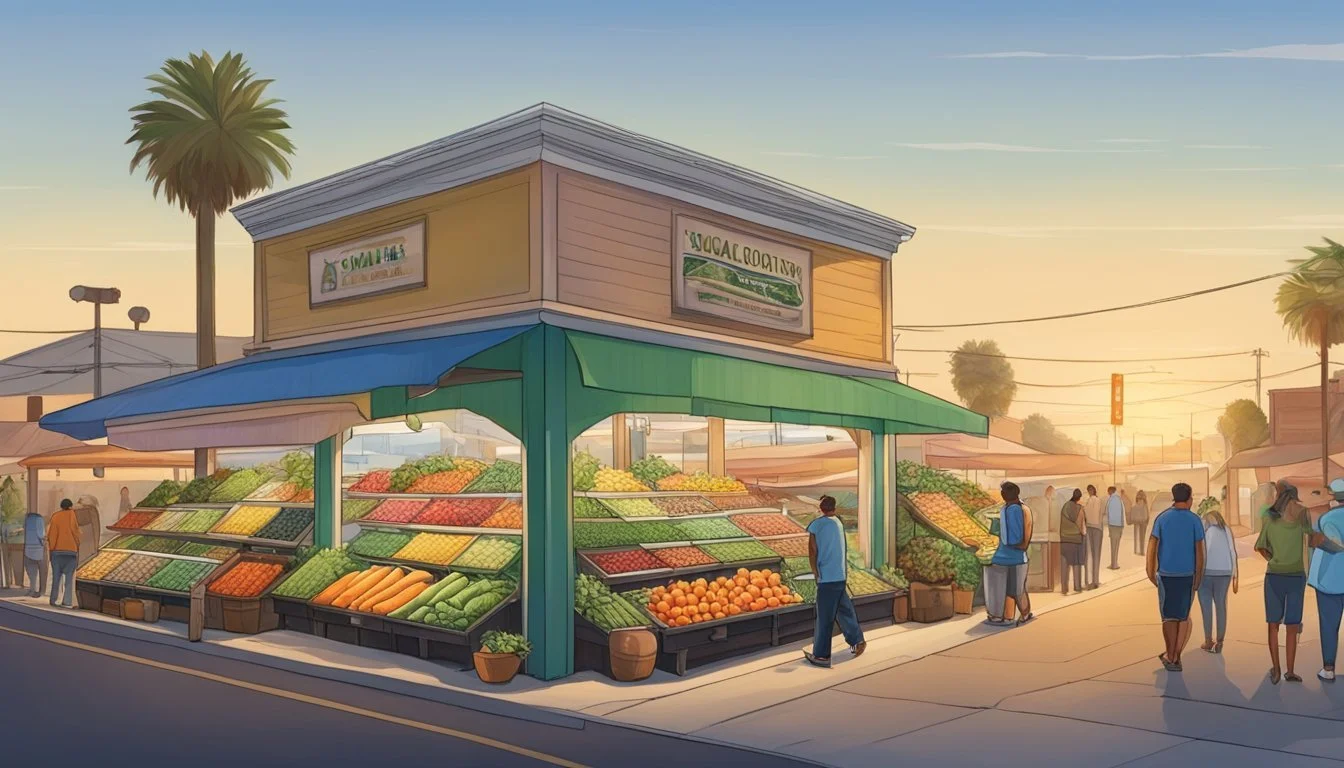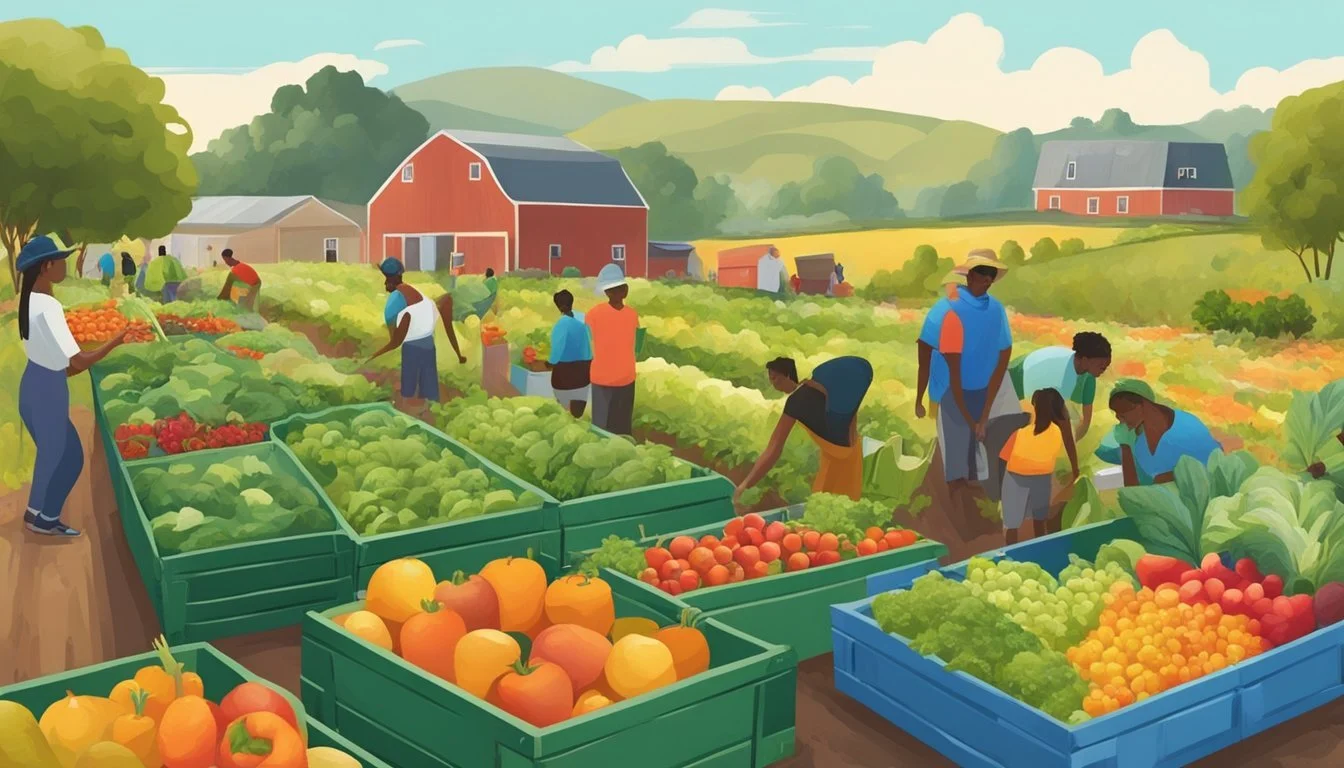Community Supported Agriculture (CSA) in Oxnard, CA
Thriving Local Food Networks
Community Supported Agriculture, commonly known as CSA, is a model of farming and food distribution that has risen to prominence over the past 25 years. In Oxnard, California, this approach has deepened the connection between local farmers and the surrounding community. Through the CSA model, consumers have the opportunity to buy 'shares' from local farms, which in return provides them with a portion of the farm's harvest. These shares typically consist of a variety of seasonal produce that is distributed to members on a regular basis, often weekly.
Oxnard's agricultural landscape is bolstered by its unique partnerships between local farmers and community programs. One such collaboration involves the DeBusschere Family Farm and The Abundant Table's campus ministry program, which works collectively to provide fresh, organic produce to members. Not only does this initiative support sustainable farming practices by emphasizing organic produce, but it also ensures that members receive a diverse range of fruits and vegetables throughout the growing season. By participating in a CSA program, Oxnard residents make a direct investment in their health, community welfare, and local agriculture.
The success of CSAs in Oxnard is indicative of a national trend where consumers are increasingly seeking direct relationships with their food producers. This model has been recognized for its benefits, including fresher produce, support for local economies, and reduced environmental impact by minimizing transportation distances. The adaptability of CSA programs has allowed them to offer an abundance of seasonal items, which sometimes include goods sourced from nearby farms to ensure a well-rounded selection of produce for their members.
Understanding CSA
Community Supported Agriculture represents a partnership between local farmers and community members in Oxnard, enabling both fresh produce and a strengthened local economy.
Defining Community Supported Agriculture
Community Supported Agriculture (CSA) is a model where consumers buy shares of a farm's expected harvest in advance. This financial structure allows consumers to become stakeholders or members of the CSA, providing upfront capital to the farmers. In turn, members receive a periodic box—typically weekly—filled with a variety of seasonal produce and sometimes additional farm products like eggs or honey. This system benefits the local food movement by ensuring farmers have a guaranteed market for their produce and consumers get access to fresh, locally-grown food.
History and Evolution of CSA
The CSA concept emerged in the 1960s in Switzerland and Japan as a response to concerns about food safety and the urbanization of agricultural land. It arrived in the United States in the 1980s and has since evolved to adapt to various regional climates and community needs, including those in Oxnard, CA. Modern CSAs often offer flexibility to members, such as payment plans and customizable boxes, while also integrating new distribution methods like farm pick-ups, drop-off points, and even home delivery options, making local food more accessible to a broader audience.
Benefits of Joining a CSA
Joining a CSA in Oxnard offers tangible perks, from enhancing health with fresh produce to contributing to climate action. Members receive a bounty of benefits that ripple through their daily lives and the community.
Advantages of CSA Membership
CSA members in Oxnard enjoy a consistent supply of fresh, locally grown produce. By purchasing a share of the harvest, members support local farmers and the regional economy. This membership model ensures farmers receive a stable income and the members, in return, enjoy the fruits of harvests throughout the growing season.
Financial Support for Farmers: Upfront payments improve farm cash flow.
Community Building: Members engage directly with food growers, fostering personal connections.
Guaranteed Produce: Regular shares eliminate concerns over seasonal availability.
Health and Nutritional Perspectives
Members of a CSA typically have access to a diverse array of seasonal produce, often organic and rich in nutrients. Research indicates that fresh, locally sourced fruits and vegetables are higher in vitamins and minerals. With weekly CSA boxes, members can integrate a variety of healthy, whole foods into their diet.
Nutrient-Rich Food: Seasonal produce is often at its peak in flavor and nutrition.
Encourages Healthy Eating: Regular supply of produce promotes a balanced diet.
Environmental Impact
By participating in a CSA, members directly contribute to climate action and reduce their carbon footprint. Organic farms in the Oxnard area typically employ practices that conserve soil and water, protect biodiversity, and minimize waste. The reduction in transportation requirements for local produce also diminishes greenhouse gas emissions associated with food distribution.
Sustainable Practices: Local farms often prioritize ecological balance and resource conservation.
Reduced Carbon Footprint: Shorter travel distances for food mean lower emissions.
CSA Operations in Oxnard, CA
Community supported agriculture in Oxnard, CA connects consumers directly with local farms to provide them with seasonal produce. This model promotes sustainable farming practices and strengthens the community's relationship with food sources.
Local CSA Farms Overview
In Oxnard, several local farms participate in CSA programs, such as The Abundant Table in nearby Camarillo. These farms offer shares to community members, which typically include a variety of fresh vegetables and fruits. Farmers gain a stable market, while members enjoy fresh, local produce.
Local Farms: The Abundant Table
Share Contents: Vegetables, fruit
Community Impact: Direct support of local farmers
Seasonality and Produce Availability
CSA shares in Oxnard are known to be reflective of the seasonal availability of produce. Members can expect a rotation of fruits and vegetables such as strawberries and broccoli that are grown locally and harvested at peak times for optimum flavor and nutrition.
Seasonal Produce: Strawberries (Spring), Broccoli (Fall/Winter)
Delivery Frequency: Weekly or bi-weekly, depending on the farm
Organic Farming Practices in Oxnard
Organic farming is integral to many CSA operations in Oxnard, reflecting a state-wide commitment to sustainable agriculture. Farms implementing these practices avoid synthetic pesticides and fertilizers, focusing on ecological balance and conservation of soil and water to produce wholesome, environmentally friendly food.
Practices: No synthetic pesticides/fertilizers, soil conservation
Certification: Many farms strive for organic certification
Membership and Subscription Details
Joining a CSA in Oxnard, CA, offers community members the opportunity to support local agriculture while receiving fresh, seasonal produce directly from the farm. This section provides details on how to embark on this mutually beneficial journey.
How to Become a CSA Member
To become a CSA member, individuals must sign-up with a local CSA farm, which involves selecting the type of subscription that suits their needs. This sign-up process typically happens at the beginning of the growing season, although some CSAs may offer rolling enrollment. Potential members should visit the CSA's website or contact them directly to inquire about membership availability.
Costs and Payment Options
The cost of a CSA membership can vary, but it generally reflects the seasonal yield and duration of the subscription. Payment options often include upfront fees for the entire season or periodic payments. Many CSAs in Oxnard may offer sliding scale fees to make shares more affordable. Some even accept SNAP or EBT payments, which helps to support members from various economic backgrounds.
Understanding Shares and Distribution
Members receive shares, typically a box of farm-fresh, seasonal produce, delivered weekly or bi-weekly. Distribution methods include home delivery or pick-up at designated locations. Pick-up locations are usually easily accessible, fostering a sense of community. It's essential for members to understand the nature of CSA shares: they share both the bounty and the risks of farming with the grower, which includes variations in harvest due to weather or other factors.
Maximizing Your CSA Experience
To truly benefit from a CSA in Oxnard, CA, members should embrace cooking with what's seasonally available and actively engage with their CSA community. These strategies ensure members enjoy the freshest produce while supporting local agriculture.
Cooking with Seasonal Produce
When a member receives a share of produce from a CSA, they are enjoying the freshest possible ingredients, often harvested at their peak. Regularly incorporating these seasonal items into meals not only enhances flavor but also maximizes nutritional value. To make the most of this, members can:
Educate themselves on the produce they receive; understanding the seasonal varieties available can inspire new dishes and applications in the kitchen.
Utilize provided recipes as a starting point, which are often tailored to the box's contents, ensuring that members can prepare meals with every item received.
Keep a collection of versatile recipes that adapt well to a variety of produce, allowing for creativity with whatever the season brings.
Engaging with the CSA Community
Joining a CSA is just the beginning; engagement with the community can greatly enhance the overall experience. One can:
Attend CSA-hosted events or farm visits to connect with farmers and fellow CSA members, which often leads to an exchange of cooking tips and recipe ideas.
Participate in online forums or social media groups specific to the CSA to stay informed about upcoming harvests, share experiences, and request advice on handling unfamiliar produce.
Volunteer with the CSA's activities if possible, which could include assisting with distributions or helping at the farm, furthering one's connection to the source of their food.
Support and Resources for CSA Members
Joining a Community Supported Agriculture (CSA) program entails more than simply receiving a box of fresh, seasonal produce; it includes becoming part of a community where support and resources are readily available. Members in Oxnard, CA, have access to a variety of resources designed to enhance their CSA experience.
Access to Expert Knowledge and Tips
Members typically have direct contact with the local farms participating in CSA programs, providing an invaluable opportunity to learn from the expertise of the farmers. These experts share insights on:
Preparing and storing fresh produce
Sustainability practices in agriculture
Forums and newsletters from the CSA, possibly through organizations like Community Alliance with Family Farmers (CAFF), often circulate tips and advice on how to maximize the benefits from each CSA share.
Local CSA Networks and Partnerships
LocalHarvest and the CSA Innovation Network are two platforms where Oxnard CSA members can connect. These networks facilitate partnerships and foster a sense of community among CSA members, local farms, and consumers. They provide:
Networking opportunities for members to discuss and exchange ideas
A platform for asking questions and addressing concerns related to CSA
Members leverage these networks to stay informed about the latest trends in local agriculture and CSA practices. These partnerships are pivotal for the growth and sustainability of CSAs, ensuring members receive the best possible return on their investment in local agriculture.
Economic and Market Dynamics
Community Supported Agriculture (CSA) in Oxnard, CA, influences local market trends and economic health. By connecting consumers directly with growers, CSAs impact the fabric of local commerce through the promotion of sustainable practices and fostering economic relationships.
Impact of CSAs on the Local Economy
In Oxnard, California, the introduction of CSA farms has shifted some economic activity toward a more localized model. CSA shares, representing a commitment by consumers to a farm's seasonal production, enable producers to anticipate revenue, thereby stabilizing farm income. This infusion of pre-season capital allows farmers to plan effectively, reducing their reliance on loans and improving the overall financial health of the farming operation.
Furthermore, the local economy benefits from the tendency of CSA funds to circulate within the community. As CSA members often prefer to support local growers, their dollars frequently stay within the local area, bolstering small businesses and contributing to the creation of jobs. This economic phenomenon is indicative of the robust effect CSAs can have in Oxnard's local economic infrastructure.
Marketing Strategies for CSA Farms
For CSA farms in Oxnard, the key to success lies in deploying effective marketing strategies that hinge on direct marketing tactics. CSA operations typically utilize a subscription-based model, where consumers pay upfront for a season's worth of produce. This approach requires strategic planning to ensure a consistent and loyal customer base.
Direct Relationships: By emphasizing the relationship-building aspect of CSA shares, farms attract consumers seeking direct interaction and transparency regarding the source of their food.
Community Engagement: Farms often participate in local events and utilize social media platforms to raise awareness and foster a sense of community around their brand.
Collaborations: Partnerships with local businesses and distributors can aid in extending market reach. Such collaborations can also include offering CSA drop-off points at strategic locations such as local markets or subscription addons like local artisanal goods.
CSA farms must navigate the intricate balance between supply and demand, adjusting their production based on member feedback and market analysis. The critical element here is clear and ongoing communication with CSA members to ensure their needs are met and that product offerings remain relevant and appealing.
Challenges and Considerations
Community Supported Agriculture in Oxnard faces unique challenges that need strategic consideration for the CSA model to thrive. Addressing concerns and optimizing member satisfaction are essential for long-term success.
Addressing Common Concerns
Questions and Surveys: It is crucial to regularly gather feedback through surveys to understand member concerns. Engagement with CSA members can help identify areas of improvement. Analysis of survey data is instrumental in adapting CSA operations to meet community needs.
Demographics and Income: Understanding the local demographics and income levels in Oxnard helps tailor the CSA offerings to ensure affordability and accessibility, thereby widening their reach.
Retention and Member Satisfaction
Retention Rates: Oxnard's CSA programs must monitor retention rates carefully. Regular reports allow for timely identification of the causes behind members leaving and enable CSAs to implement corrective measures.
Satisfaction Analysis: Satisfaction is a key indicator of CSA health. Analyzing feedback and satisfaction levels from all demographics can guide informed changes, fostering a stronger, more resilient CSA community.
Future of CSA in Oxnard
In Oxnard, California, CSA's trajectory is influenced by local agricultural practices and environmental factors. Here we explore the emerging trends, innovations, and the sustainability role that CSA is likely to adopt.
Emerging Trends and Innovations
Community Supported Agriculture (CSA) in Oxnard is adapting to modern demands through several emerging trends. Innovations in CSA stem from a blend of technology and traditional organic farming, aiming to optimize produce quality and distribution. One notable trend is the CSA Innovation Network, which fosters the exchange of new ideas and practices among farmers. Here are some specific advancements:
Technology Integration: Farms are utilizing digital platforms for subscription management, providing real-time updates to their subscribers about available produce or delivery schedules.
Diversification of Produce: CSAs are expanding their offerings beyond traditional crops to include more exotics and culturally diverse vegetables and fruits, aligning with the diverse demographics of the area.
Organic Methods: There's an increased emphasis on organic farming, which avoids synthetic pesticides and fertilizers, beneficially impacting the local ecosystem.
CSA's Role in Sustainable Agriculture
Oxnard CSAs are central to promoting sustainable agriculture practices. By emphasizing direct relationships between farmers and consumers, CSAs facilitate a deeper understanding of the importance of environmentally responsible farming. Two main aspects include:
Climate Action: CSA practices in Oxnard are expected to prominently feature climate action, using methods that reduce carbon footprints and foster soil health.
Educational Outreach: Many CSAs are engaging the community with educational programs that inform on the benefits of sustainable farming and the importance of supporting local agriculture for the future health of the planet.
CSAs in Oxnard are poised to not only influence the local food scene but also contribute significantly to the wider conversation and action around sustainable living and climate-smart agriculture.

